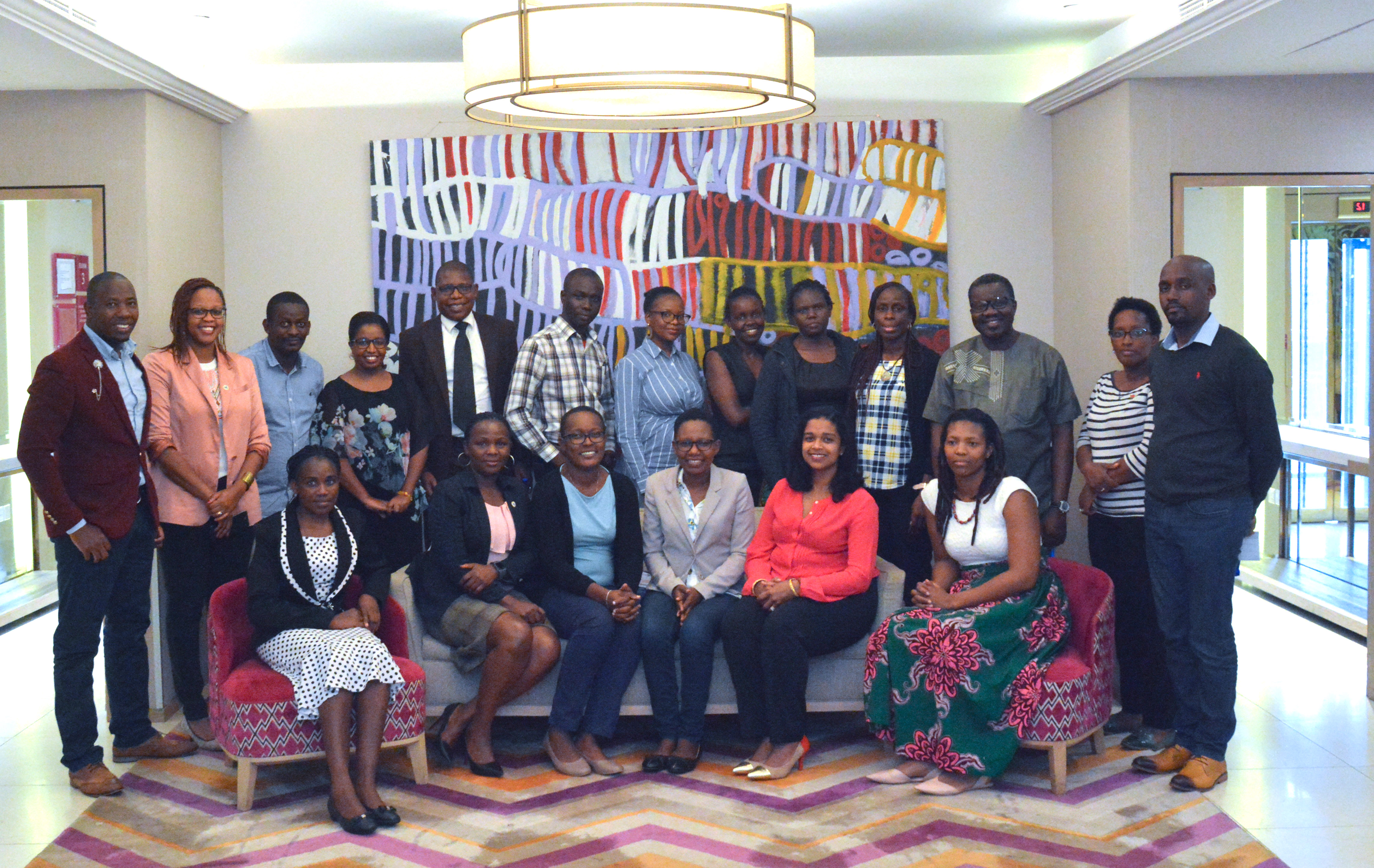Thirteen African scientists have received funding to implement innovative community and public engagement projects. These engagement projects move African science towards people-centred approaches of conducting research promoting societal impact of health research.
The 13 are the first to be funded through the African Academy of Sciences (AAS)’s DELTAS Africa Community and Public Engagement (CPE) seed fund. DELTAS Africa — the Developing Excellence in Leadership, Training and Science — is a US$100 million programme of the AAS supporting the Africa-led development of world-class researchers and scientific leaders in Africa. DELTAS Africa supports eleven research programmes implemented in more than 20 African countries. The CPE seed fund, created with the support of Wellcome and the UK Department for International Development (DFID), is a 6-month scheme to support DELTAS Africa doctoral and postdoctoral fellows to implement innovative engagement projects aligned to their research projects. This includes: building engagement capacity of the fellows and pilot engagement activities to promote societal impact of DELTAS Africa research.
The confirmed doctoral and postdoctoral fellows who convened in Nairobi, Kenya on 28-30 August for the first CPE seed fund inception meeting are:
Adebolajo A. Adeyemo, University of Ibadan, Nigeria, (CARTA+)
Deafness is one of the most common disabilities in the world with a severe footprint in Africa. Many causes of hearing loss such as ototoxicity are preventable and interventions preventing hearing loss are cost-effective. Adeyemo's project will use short drama videos and social media to explore societal engagement in curbing ototoxicity in Nigeria.
Adesola Oluwafunmilola Olumide, University of Ibadan, Nigeria, (CARTA+)
There are nearly 1.2 billion adolescents (10-19 years old) worldwide. Unfortunately, this is the population group that remains overlooked and neglected in nearly every health care system. Olumide’s research findings revealed that adolescents enrolled in secondary school were less likely to engage in health-risk behaviors (cigarette smoking and unsafe sexual practices). Using photo voice, her project will identify feasible actions for promoting senior secondary school retention for adolescents in Nigeria.
Christian Tetteh Duamor, Nelson Mandela African Institute of Science and Technology, Tanzania, (AFRIQUE One-ASPIRE)
Rabies is most rampant in Africa and Asia and claims 59,000 lives annually. One of the targeted approaches to reducing rabies cases is mass dog vaccinations. However, many communities do not participate in free mass dog vaccination campaigns. Through community-based accountability meetings and creative arts, Duamor’s project focuses on changing societal perceptions on dogs to improve community participation in dog vaccination campaigns.
Clement Nhunzvi, University of Zimbabwe, Zimbabwe, (AMARI)
Substance abuse and HIV are highly prevalent, complex and often misunderstood conditions among youths in Zimbabwe. Nhunzvi’s project will use creative arts and competitions to engage school children (13-18years) in Zimbabwe on issues of social inclusion and stigma complicating prevalent problems of substance abuse and HIV in the community.
Lerato Ndlovu, Africa Health Research Institute, South Africa, (SANTHE)
Tuberculosis (TB) is the ninth leading cause of death worldwide and the leading cause from a single infectious agent, ranking above HIV/AIDS. Ndlovu’s project will promote interest in infectious disease research in the neglected rural communities in South Africa through a play.
Lucy Mupfumi, Botswana-Harvard AIDS Institute Partnership, Botswana, (SANTHE)
Tuberculosis (TB) currently causes more deaths than HIV, claiming an estimated 4,500 lives daily. WHO officially launched a global youth movement to raise awareness about TB, “#1plus1YouthInitiative”. Mupfumi's project will engage adolescents aged 12-19 years in Botswana using story-telling and short ethical documentaries to improve understanding predictors of incident TB in HIV-infected patients.
Motswedi Anderson, Botswana Harvard AIDS Institute Partnership, Botswana, (SANTHE)
Mortality due to viral hepatitis is on the rise and the greatest burden is due to hepatitis B virus (HBV), which kills around 887,000 people annually. Motswedi’s project will engage adults aged 18-40 using participatory arts to evaluate their knowledge and perspectives towards HBV.
Patience Kiyuka, KEMRI-Wellcome Trust Research Programme, Kenya, (IDeAL)
Engagement by researchers is vital for the public to understand and appreciate science. Kiyuka's project will engage children aged 10-14 years using Virtual Reality to inspire young scholars to consider Science, Technology, Engineering and Maths (STEM) careers options.
Primrose Nyamayaro, African Mental Health Research Initiative, Zimbabwe, (AMARI)
People living with HIV are more likely to have common mental disorders such as depression, which has negative outcomes on antiretroviral treatment. This community engagement project aims to empower persons living with HIV and their support networks with mental health knowledge to improve their treatment outcomes. The project will develop mental health education awareness messaging materials for dissemination.
Respicius Shumbusho Damian, University of Dar es Salaam, Tanzania, (CARTA+)
Shumbusho’s project will empower rural communities in Tanzania to play an effective oversight role in primary health care to ensure accountability with regards to public resource use and service delivery at community and facility levels. His project aims to do this through community dialogue meetings and joint learning and reflection sessions.
Sophie Uyoga, KEMRI Wellcome Trust Research Programme, Kenya, (IDeAL)
Sickle cell disease (SCD) is an inherited red blood cell disorder that results in the formation of abnormal haemoglobin. There are over 300,000 children born with SCD every year with most births occurring in sub-Saharan Africa. Uyoga’s project will use comic book to raise the profile of the social issues and challenges that people living with SCD undergo.
Trizah Koyi Milugo, International Center of Insect Physiology and Ecology, Kenya, (THRIVE-2)
Malaria continues to be a leading health burden in many sub-Saharan Africa countries despite concerted efforts aimed at vector surveillance and control, as well as drug and vaccine development and deployment. Milugo's project will stimulate high school students’ interest in malaria research though a science-based project competition.
Paul Katongole, Makerere University, Uganda, (MUII Plus)
Poor school sanitation and hygiene is a major problem in developing countries and high-risk behavior among primary school going children exposes them to many infectious agents. Katongole's project on Anti-Microbial Resistance (AMR) will engage primary school pupils in the basics of microbiology with a focus on how infections are caused, transmitted and how to prevent them.

